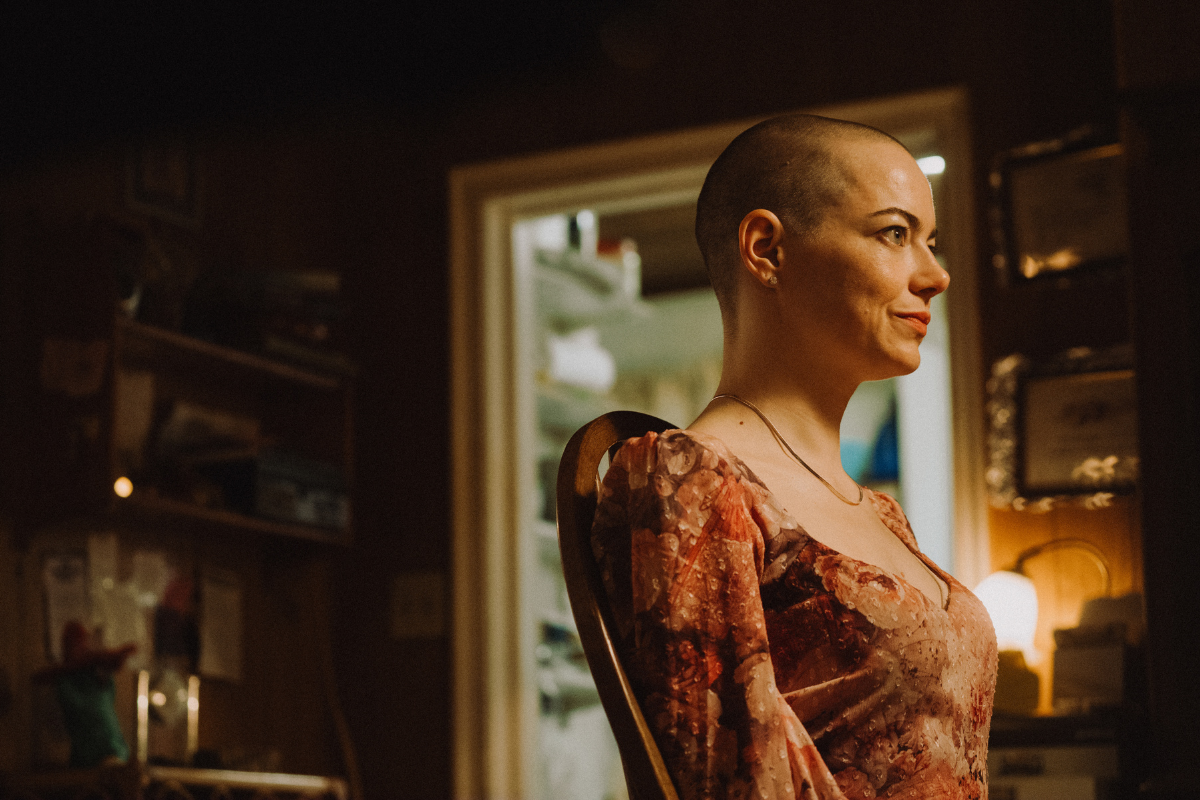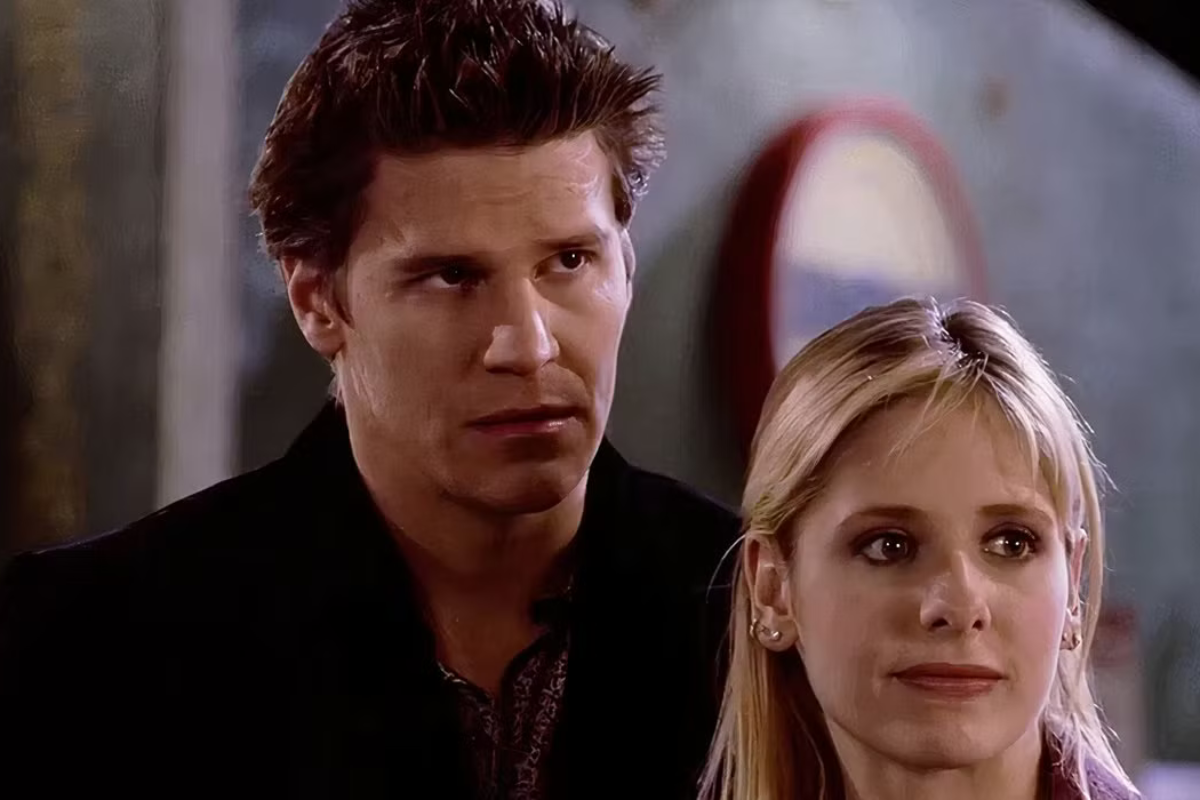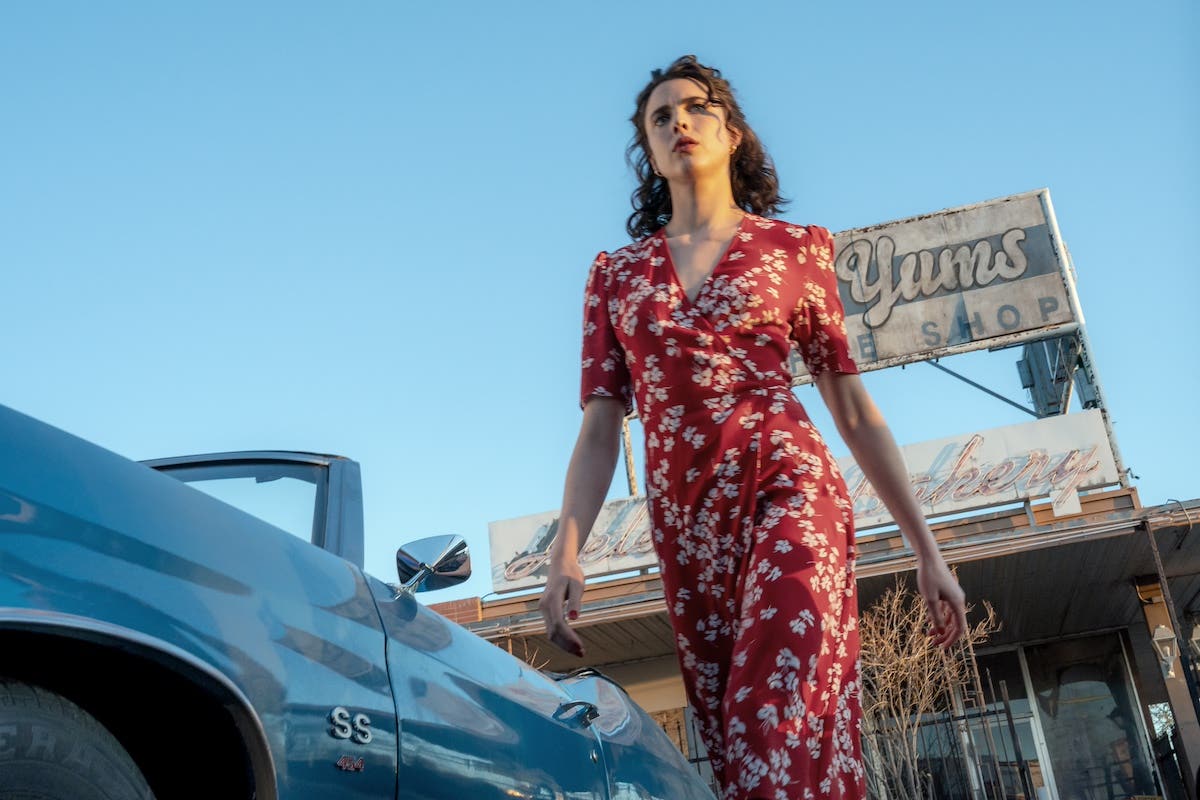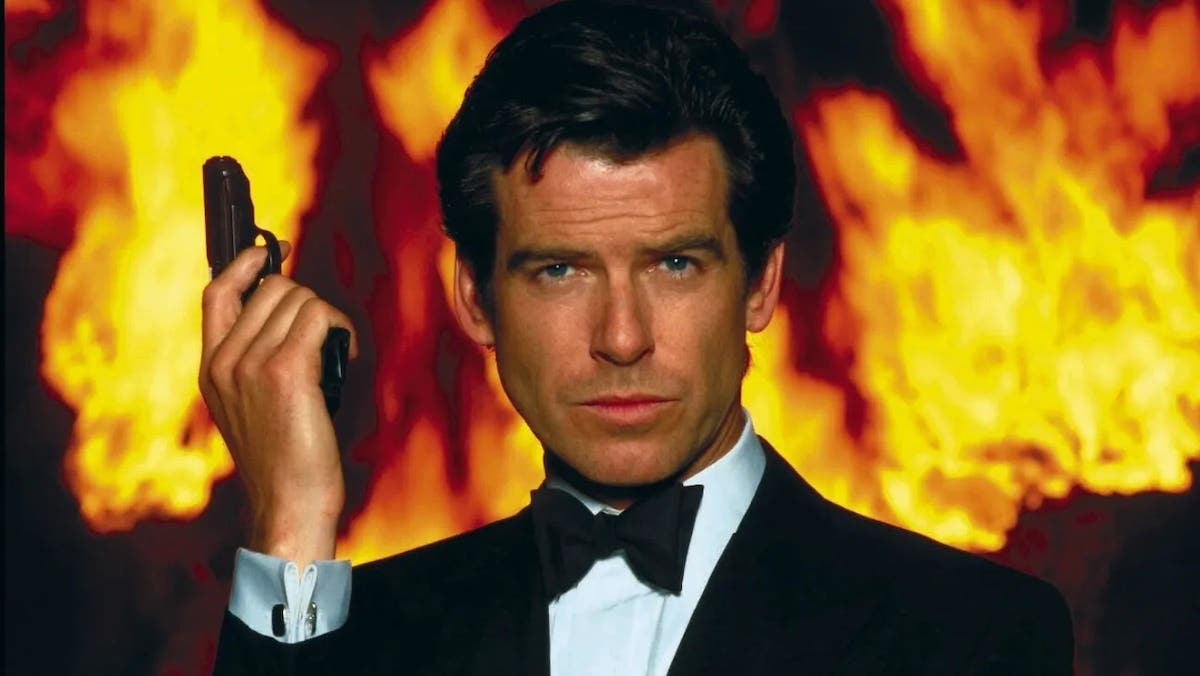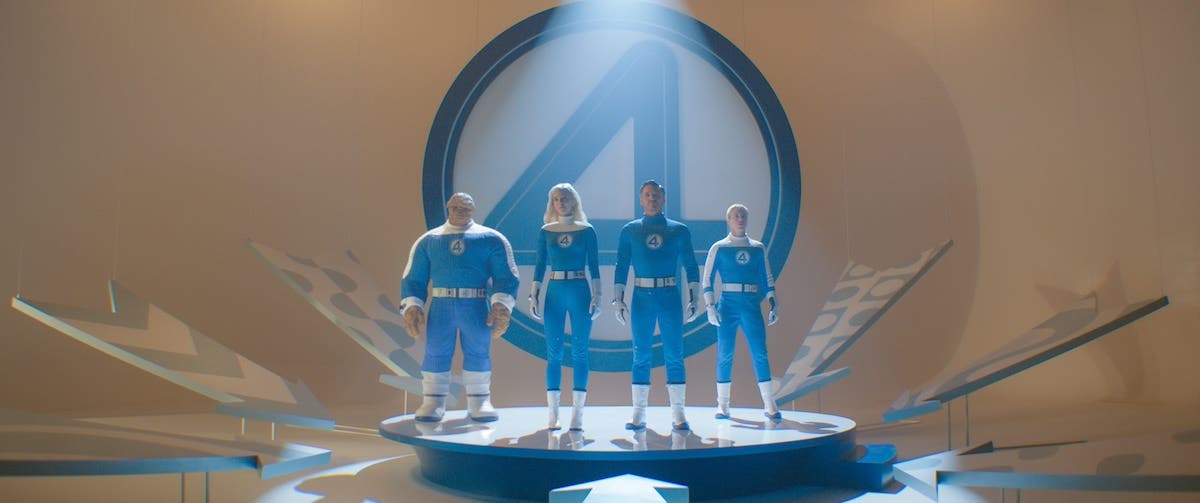SCRIPT INDUSTRY EXPERT Q&A: Meet Staton Rabin of ‘Breaking In’
Script brings you behind the scenes to get to know our family of contributors on a more personal level. Meet Staton Rabin, long-time contributor and author of ‘Breaking In’.
This week, we take you behind the scenes of Script to get to know long-time contributor Staton Rabin and her column, Breaking In.
Staton Rabin is a screenplay marketing consultant, script analyst, and "pitch coach" for screenwriters at all levels of experience. She is also a Senior Writer for Script, has been a reader for Warner Bros. Pictures, New Line Cinema, William Morris, and major screenwriting contests, and is a frequent guest lecturer at NYU. Her novel Betsy and the Emperor was in development as a movie with Al Pacino attached to star. Her new photo-illustrated book is the long-awaited autobiography of the Yankees' famous Double-A affiliate (Trenton Thunder) Bat Dog: DERBY! My Bodacious Life in Baseball.
What was the first movie you ever remember seeing or the one that made the most impact on you as a child?
It wasn’t the first movie I ever saw by a longshot, but when I saw Singin’ in the Rain for the first time-- on a movie screen outside under the stars one night during the summer I turned 15— it changed my life. The movie was positively magical, and I decided right then that somehow, some way, I was going to be involved in making movies. A few years after that, when I was attending NYU film school to get my degree, I started corresponding with Gene Kelly about my film career. He always answered me with brief personal notes of encouragement for many years after that. I’m sure he helped lots of young people in their film careers the same way he helped me.
What’s your favorite movie of all time?
I think different films “speak” to me differently at different stages of my life. When I was a teen, I identified with Judy Garland, saw all her old movies, and at times even dressed like her in The Wizard of Oz when I went to school (fortunately for me, nobody noticed the connection!).
Most of my favorite movies are old classic film musicals, such as Seven Brides for Seven Brothers, The King and I, Meet Me in St. Louis, Swing Time, Oklahoma!, Anchors Aweigh, Mary Poppins, and of course Singin’ in the Rain. But I love classic films in every genre, and some of my other favorites include Laura, Roman Holiday, The Shop Around the Corner, Casablanca, Mr. Smith Goes to Washington, Gone with the Wind, It’s a Wonderful Life, Road to Morocco, The Apartment, and countless others.
As a professional story analyst, I read and analyze scripts in every genre and have no preferences in terms of the types of material I work with.
When I love a movie, I enjoy seeing it again and again at different stages of my life and get different things out of it at different ages. I love movie stars, and some of the actors I admire or enjoy watching the most are Fred Astaire and Gene Kelly, Judy Garland, Jimmy Stewart, Gregory Peck, William Powell, Ronald Colman, Audrey Hepburn, Tyrone Power, Clark Gable, Spencer Tracy, Danny Kaye, Franchot Tone, and Buster Keaton. To me, movie stars are like old friends and I never get tired of seeing them. There’s something reassuring about seeing a classic film and knowing that while I may change, the movie will always stay the same. And thank God that movies exist, and that I don’t (for example) have to try to explain to people why Fred Astaire was a miracle-- I can show them.
What word or scenario do you never want to see in a screenplay again?
FLASHBACK:
What profession did your parents want you to have?
Anything I wanted to be. But since I come from a family of writers and artists, they really encouraged me in that direction from the earliest age. That is, they did until they saw how tough it is for anyone to earn a living as a writer and story analyst, and then my mother kept saying, “Perhaps you might re-consider and go to law school…” Early in life, I wanted to grow up to be Sherlock Holmes, a U.S. Senator, or a magician. I still have a few tricks up my sleeve.
What profession, other than your current one, would you like to try if you could have a do-over?
Well, if I could sing and dance, I certainly would have loved having that kind of career. I did acting for a long time, and studied tap, was trained in writing book and lyrics for musical theater, but never performed professionally. And God knows I can’t sing. When I see great professional singers doing duets, they look like they’re having so much fun together—and I’m jealous of their joy in being able to do that.
What drew you to the entertainment industry and specifically, why did you want to help writers?
I’ll start with the second question first. I want to help other writers because by teaching others what I know, I become a better writer myself. Encapsulating what makes a great script-- or evaluating other writers' screenplays-- reinforces my own understanding of the craft. It’s also something I enjoy and after decades of experience analyzing thousands of scripts and books, I can do this quickly, and fairly easily. It’s a heck of a lot easier to solve other people’s writing problems than to solve my own! I have a good time doing it and seeing the writer “get” the solution and how it can strengthen his or her script.
Naturally, it’s gratifying when writers tell me that they found value in reading my column—or that it was helpful to them when I evaluated their own script or story idea on a consulting basis. I always talk with clients after I read and analyze their material, and this personal interaction with them is fun for me, and hopefully both fun and productive for them as well. I can also analyze their story “on the spot” just from hearing a pitch or concept in a conversation, without needing to read any material. And it’s fun for me to be paid for work I enjoy doing.
A great time to come to me is when one is in the “idea” stage before one begins to write the screenplay-- though I’m also happy to work with writers at any stage of their process, from idea to finished script.
I’ve had clients report back that after they worked with me and completed their revisions they’ve gotten their scripts made into movies, or won screenwriting contests; so that’s always great to hear. And many of my clients come back to me for evaluations of their subsequent scripts. It's good to see them find their "voice" as writers over time.
I also enjoy solving the puzzle: trying to find the key to fixing problems in a writer's concept or story/script. I enjoy the challenge of solving the mystery and finding the solution to the problem. You see? In a way, I did end up becoming Sherlock Holmes!
Another aspect of my work is that the more writers I help, the fewer flaws I will see out there in the scripts I read and evaluate in other situations, such as the screenwriting contests for which I’m one of the judges. So one by one, I’m eliminating all the flawed scripts from the world!
Helping writers figure out how to market their scripts effectively is another aspect of my work that I enjoy, and it’s almost like a fun treasure hunt: What’s the best and most appropriate way to get Tom Hanks (for example) to read this script?
As for what drew me to the entertainment industry:
I really think that being drawn to movies in a powerful way, and wanting to tell stories, is pretty much in one’s DNA. There are people who want to consume movies strictly as an audience. That’s most people. And then there are people who want to consume and enjoy movies, but who also want to take the watch apart, and find out what’s making it tick. And I’m one of the latter. It’s never been enough for me to just enjoy movies. I also have this burning need to understand how they work, and to climb inside them and live in there. I feel connected to the people who create and act in films, and have since I was a child. I've always felt a sense of destiny when it comes to my career, which I should probably be embarrassed to admit. I was always “different” and driven. I always knew where I was going. Or at least that I was going somewhere. It wasn’t really that I had any great talent, then or now. It’s rather that I have an unusual capacity for learning, a strong work ethic, and a burning desire to be in this business. I could formulate practical plans to reach my goals and write letters to film stars and directors that generated personal responses. I have the ability to spot talent in other people, so I always learn only from the best. I knew that succeeding in my goals would be difficult—but unlike most people who want a career in the arts, I never thought it was impossible. I was never troubled by what the “odds” of success supposedly were; I never felt that the odds applied to me. So from an early age I studied the lives of people who had succeeded in the movie business, and I also read a lot of history.
Now that I’m a story/script consultant and have been for well over 30 years, I understand that perhaps what came naturally to me— some unusual ways of thinking about my own writing career, which led to success— is something I can teach to others. Most people who are successful in any career in the arts know who they are and where they are going almost from the day they are born. I never had an “identity crisis”. That’s not to say that I don’t have insecurities or doubts like all writers do. I just have different kinds of doubts, I think, than people do who aren’t in the arts as a profession.
The one thing that all people who achieve success in the arts have in common is that they are perfectionists by nature. Whether you look at Astaire, or Sinatra, or Kelly, or anyone else who achieves greatness in a creative career, they all work harder than anyone else. Even when the public would have accepted “junk” from them after they were famous, they continued to try to get better at what they do, every day. There’s a lesson for screenwriters in that. When it comes to trying to have a career in the arts, I just think that the standards that most people set for themselves are too low. They "aim low" and give up too easily. Being able to write a good letter, and learning the etiquette of the business, is also really important.
Tell us something we don’t know about you.
Well, people who read my screenwriting column at scriptmag.com regularly know that I’m a passionate baseball fan. But many of my readers might not know that in addition to being a writer and script analyst, I’m a freelance sports photographer, and photograph baseball, professional bull riding, and other sports. I like both of my careers because it’s a great balance between working at my desk, writing, evaluating scripts, and helping other writers-- and also being out in the world having exciting experiences shooting sporting events and photographing pro athletes at work.
What do you wish you knew about the industry before you jumped in?
Nothing that I can think of. Things are pretty much as I expected them to be. The system is fair. It’s entirely merit-based, at least for writers of feature films or books. So I can’t say anything in the film or publishing business took me by surprise. I expected that success would take time, and would depend on a combination of talent, persistence, and emotional intelligence— and that seems to be what it takes.
If you could impart only one piece of knowledge onto writers, what would it be?
Work harder and smarter than anyone else, write from an authentic place (your knowledge of people and of life), and know that there is no one “conspiring” to keep you out of the business. Don't try to "be commercial" or follow trends. Also: you don’t need “connections.” You need powerful advocates in the film industry who know and love your work.
If you could go back in time and talk to your 18-year-old self, what advice would you give?
I guess it took me a while to realize how fortunate I was to be young and healthy, and I know I spent a lot of time worrying about nothing back then. But I guess almost nobody realizes that at that age! And if I told my 18-year-old self that, I wouldn’t listen!
- More Script Industry Expert Q&As
- Staton Rabin's Breaking In Articles
- Follow Staton on Twitter: @StatonRabin
- Visit Staton's website, Jump Cut Script Analysis
- For information on hiring Staton Rabin for a phone consultation or reading/evaluation of your script, contact: Cutebunion@aol.com
Download FREE screenwriting resources from Script today!
Top screenwriting and film publication, founded in 1989, published by Active Interest Media. Twitter: @scriptmag



